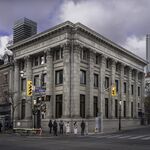The 41st Annual Heritage Toronto Awards were held at Koerner Hall Tuesday evening, bringing together a diverse group of nominees and attendants, all joined by a mutual appreciation of "Toronto's archeological, built, cultural or natural heritage and history." While the announcements of award winners were met with excitement and anticipation, the event's theme of building a compassionate city resonated deeply through the evening, making the Awards a call for civic self-improvement as much as a celebration of achievement.
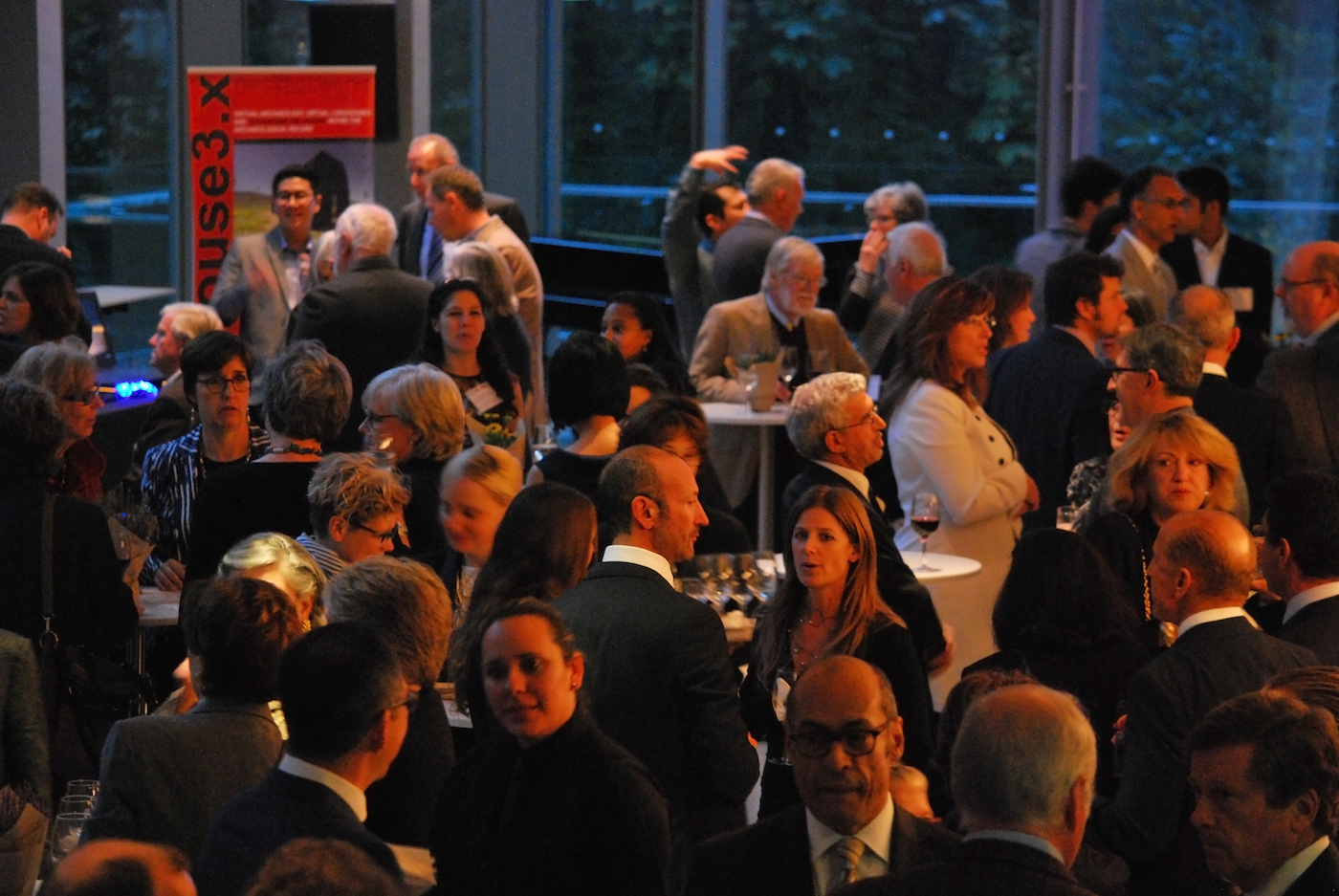 The crowd gathers for the Mayor's Reception, image by Marcus Mitanis
The crowd gathers for the Mayor's Reception, image by Marcus Mitanis
The awards ceremony was preceded by the Mayor's Reception, where John Tory congratulated the nominees for their efforts, underlining the importance of improving Toronto's architectural heritage preservation in the coming years. "I'm an ideologue on very few things," Tory told the crowd, "but it has become clear to me that retaining facades just isn't good enough anymore. After decades of demolishing our heritage or only leaving small parts of it standing, we are now committed to treating our city's architecture with greater respect," the Mayor announced, recognizing the importance of heritage preservation in our quickly changing city.
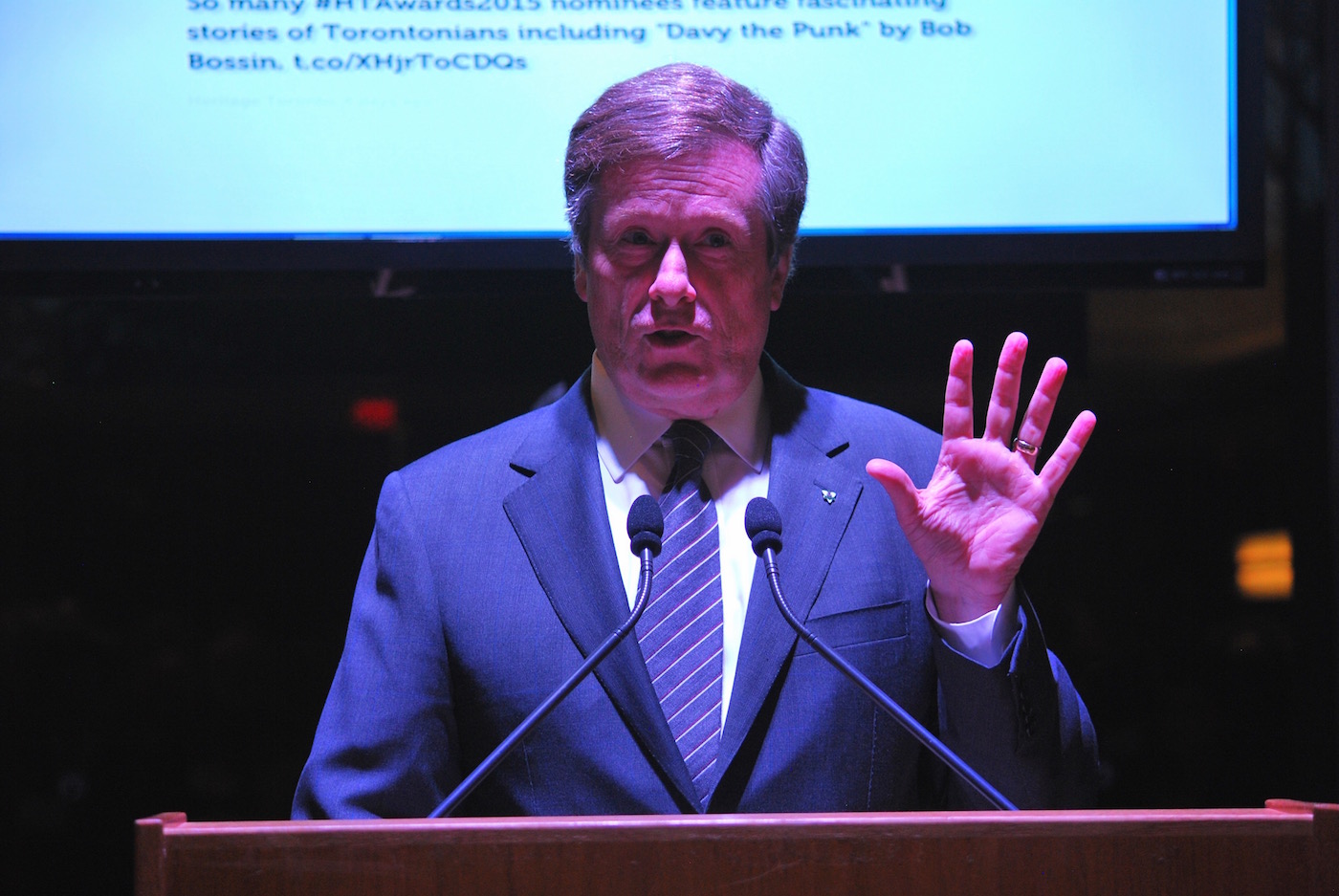 John Tory speaks about the importance of heritage preservation in architecture, image by Marcus Mitanis
John Tory speaks about the importance of heritage preservation in architecture, image by Marcus Mitanis
Following the reception—which was held in the modern atrium overlooking the historic Philosopher's Walk—Koerner Hall welcomed guests and nominees for the awards ceremony. The CBC's Mary Ito (below) hosted the event, and spoke about the importance of compassion and kindness in urban life. "On a recent trip to Oakville, a man at the gas station offered to drive ahead of me to my destination when I got lost, and a woman I'd never met before approached me at a restaurant to share a meal together after my friend forgot to show up," Ito recalled, highlighting the open and friendly spirit that is often lost in larger metropolitan settings. "Would the same thing have happened in Toronto?" Ito asked the crowd, leaving the audience to reflect on the state of compassion in 21st century Toronto.
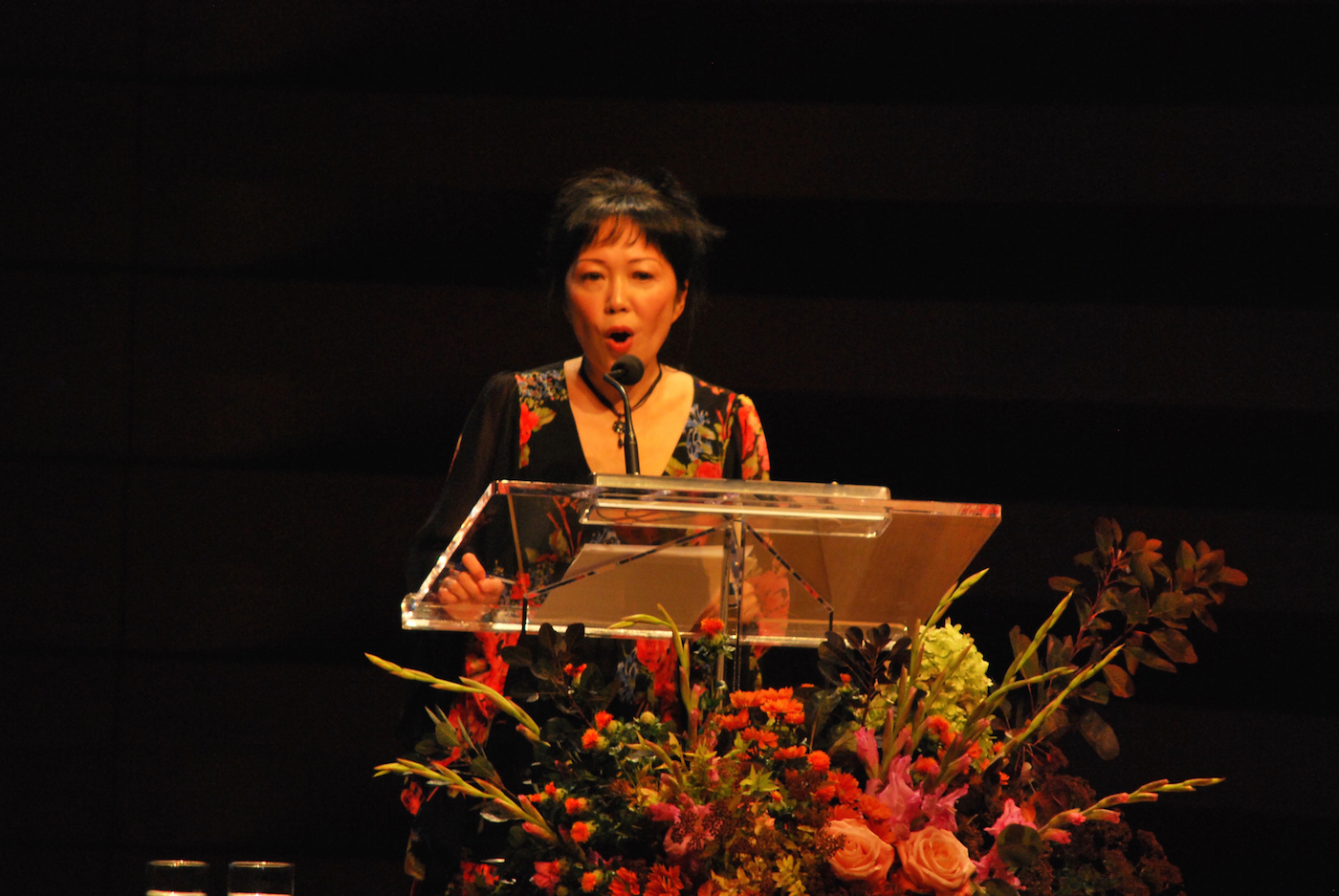 Mary Ito introduces the Heritage Toronto awards, image by Marcus Mitanis
Mary Ito introduces the Heritage Toronto awards, image by Marcus Mitanis
The theme of civic compassion would be continued in the evening's Kilbourn Lecture, which followed the award announcements. The ceremony's main event, however, saw award winners announced in the categories of Community Heritage, Media, Book, Short Publication, and Architectural Conservation and Craftsmanship. UrbanToronto previewed the full list of architectural nominees, as well as all nominees in the remaining four categories last month, providing a comprehensive overview leading up to the event. Yesterday, the winners we finally announced:
William Greer Architectural Conservation and Craftsmanship Awards
Two awards were given out for each of the two architectural subcategories, with awards of Excellence and Merit given to both small and large-scale projects.
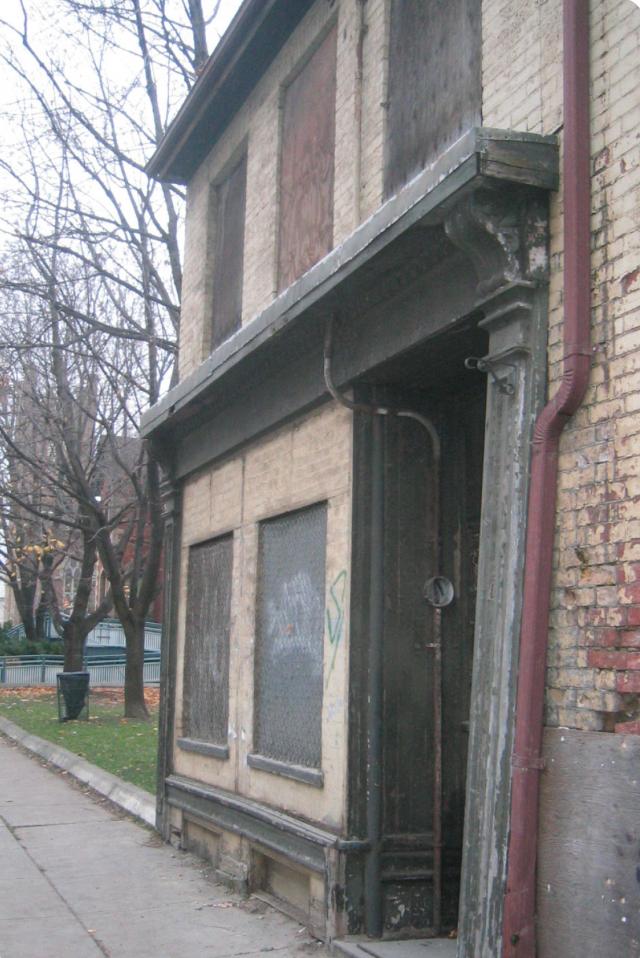 A 'before' shot of the Little Trinity Church Annex, image courtesy of Heritage Toronto
A 'before' shot of the Little Trinity Church Annex, image courtesy of Heritage Toronto
The Little Trinity Church Annex received the Award of Excellence for a—despite its name—large project, with DTAH Architects and ERA Architects (together with Historic Restoration Inc.) recognized for adapting a row of derelict townhouses (above) into an attractive and meticulously restored new administrative and community space (below).
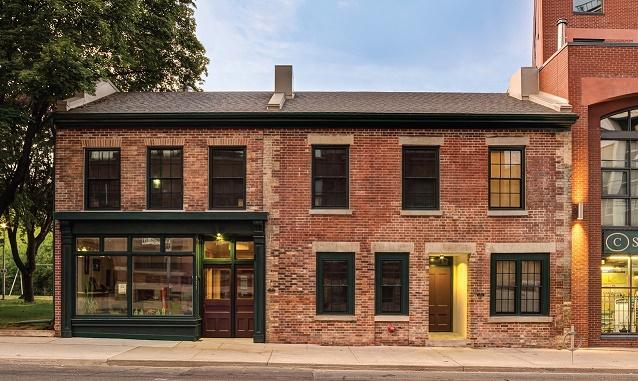 The restored Little Trinity Church Annex, image courtesy of Heritage Toronto
The restored Little Trinity Church Annex, image courtesy of Heritage Toronto
In the 'large project' category's Award of Merit was presented to the Munk School of Global Affairs, where architects KPMB and ERA, together with Crossey Engineering and Blackwell Bowick Partnership Ltd., sensitively adapted the century-old meteorological building (and adjacent transit house) into a new facility for the University of Toronto.
In the 'small project' category, the Award of Excellence was presented to HNR Properties' restored bronze doorway at the Hermant Building, facing Yonge-Dundas Square. The ERA Architects project saw the long lost doorway recreated in its gleaming pomp decades after its removal. The Award of Merit went to the Toronto Bell Cote—Sukyo Mahikari Centre for Spiritual Development, where architectural firms Takashi Tsuji and William N. Greer repurposed the 1895 building, adding a new foundation and basement.
Honourable Mention (large project): Artscape Youngplace (commissioned by Artscape, architecure/design by Teeple Architects Inc, Goldsmith Borgal & Company Ltd.)
Honourable Mention (small project): Landing Stage, Ward's Island (commisioned by City of Toronto, architecture/design by Steven Burgess Architects)
Community Heritage Awards
The category recognizes "volunteer community-based organizations...[that] have either initiated or completed a significant activity that promotes, protects, or preserves cultural or national heritage." A cash award, the prize money can help fund new or ongoing operations, and can be awarded to the same organization a maximum of once every five years.
This year's winners include the Girl Guides of Canada (Guides du Canada), an organization that has recently begun archival procedures to preserve and digitize documents, making their collection of archives devoted to women's empowerment more accessible to the public. The Lawrence Park Heritage Committee was another winner, recognized for a series of evening talks in century-old houses and the establishment of a local newsletter, The History Nugget, devoted to community history.
 Header for The History Nugget, image courtesy of the Lawrence Park Heritage Committee
Header for The History Nugget, image courtesy of the Lawrence Park Heritage Committee
The Rosina Shopkeeper Project: Bloorcourt was also recognized for creating a series of plaques highlighting the neighborhood's commercial history, while the Todmorden Mills Wildflower Preserve has received an award for its devotion to the protection of natural heritage, specifically the recent restoration of 10 hectares of degraded wetland habitat.
Finally, the Heritage Toronto Members' Choice Award was presented to the Toronto Legacy Project, which is devoted to celebrating notable Torontonians by pushing for unnamed streets and public spaces to be named in their honour. The organization has also installed a series of blue plaques highlighting the places where historically significant Torontonians lives and worked.
Media Awards
The media category "salutes projects such as films, videos, websites, and mobile digital applications that educate the public about aspects of Toronto’s archaeological, built, cultural and natural heritage and history."
 An image from the Queerstory website, image courtesy of Queerstory
An image from the Queerstory website, image courtesy of Queerstory
This year's Award of Excellence was presented to Michael Alstad and Year Zero One's Queerstory (above), a mobile app that provides guided walking tours through the locations that played pivotal roles in Toronto's LGBTQ history and culture. The Award of Merit was presented to the film What If? The Unlikely Story of Toronto's Baseball Giants, directed by Dale Heslip, which explores the complex turn of events that saw the Toronto Blue Jays become a Major League Baseball team.
Honourable Mention: Harbord Village History Storyposts (Harbord Village Residents' Association)
Honourable Mention: St. Michael's Cathedral—Restoring Toronto's History (directed by Father Michael Busch)
Book Awards
According to Heritage Toronto, "the Book category recognizes well-written non-fiction books published in 2014 that explore Toronto’s archaeological, built, cultural or natural heritage and history." Nominated works include a wide variety of subjects and styles, ranging from personal memoir, to academic study, to photojournalism.
The Award of Excellence was presented to Jennifer L. Bonnell's Reclaiming the Don: An Environmental History of Toronto's Don River Valley (below), which provides a thorough ecological chronology of the iconic river, spanning to present re-naturalization efforts, which the book champions.
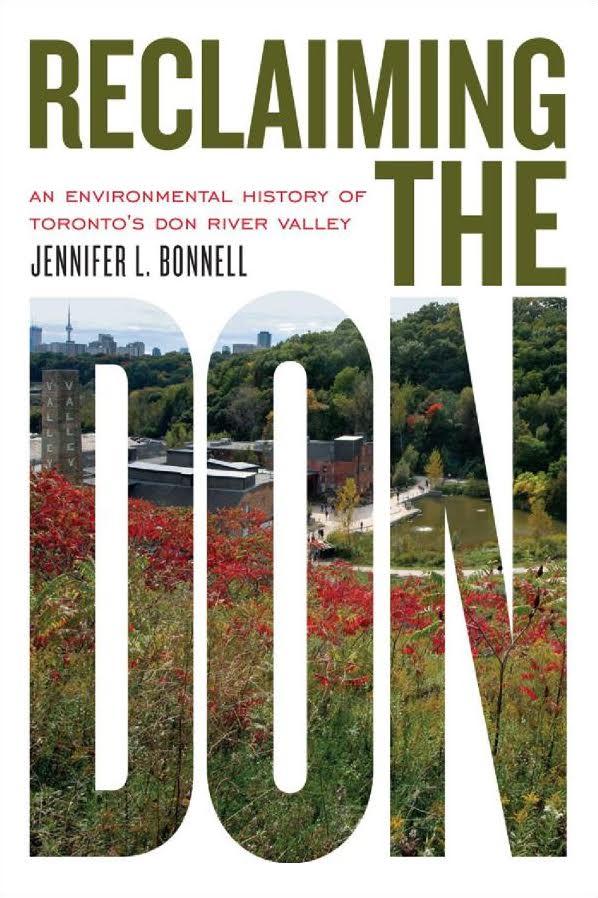 Cover of Reclaiming the Don, image courtesy of the University of Toronto Press
Cover of Reclaiming the Don, image courtesy of the University of Toronto Press
Michael A. Amos' Both Sides of the Fence: Surviving the Trap, won the Award of Merit. The book provides a first-hand account of growing up at Jane and Finch, and overcoming the dangers that befall youth in a marginalized neighborhood that seems chronically overlooked by the ostensibly compassionate society around it.
Honourable Mention: Davy the Punk, by Bob Bossin
Honourable Mention: Toronto: Biography of a City. by Allan Levine
Short Publication Awards
Winners in this category are recognized for writing "non-fiction articles and booklets published in 2014 that explore Toronto’s archaeological, built, cultural or natural heritage and history."
Two Awards of Merit were given out, both of which went to Torontoist articles. Jamie Bradburn's exploration of civic enfranchisement in "Voting Rights in Toronto: Who Has (and Hasn't) Been Allowed to Cast a Ballot in Our Elections," and David Wencer's "Historicist: Swimming at the Minnies" (a history of the High Park mineral baths), rounded out the award winners of the day (below).
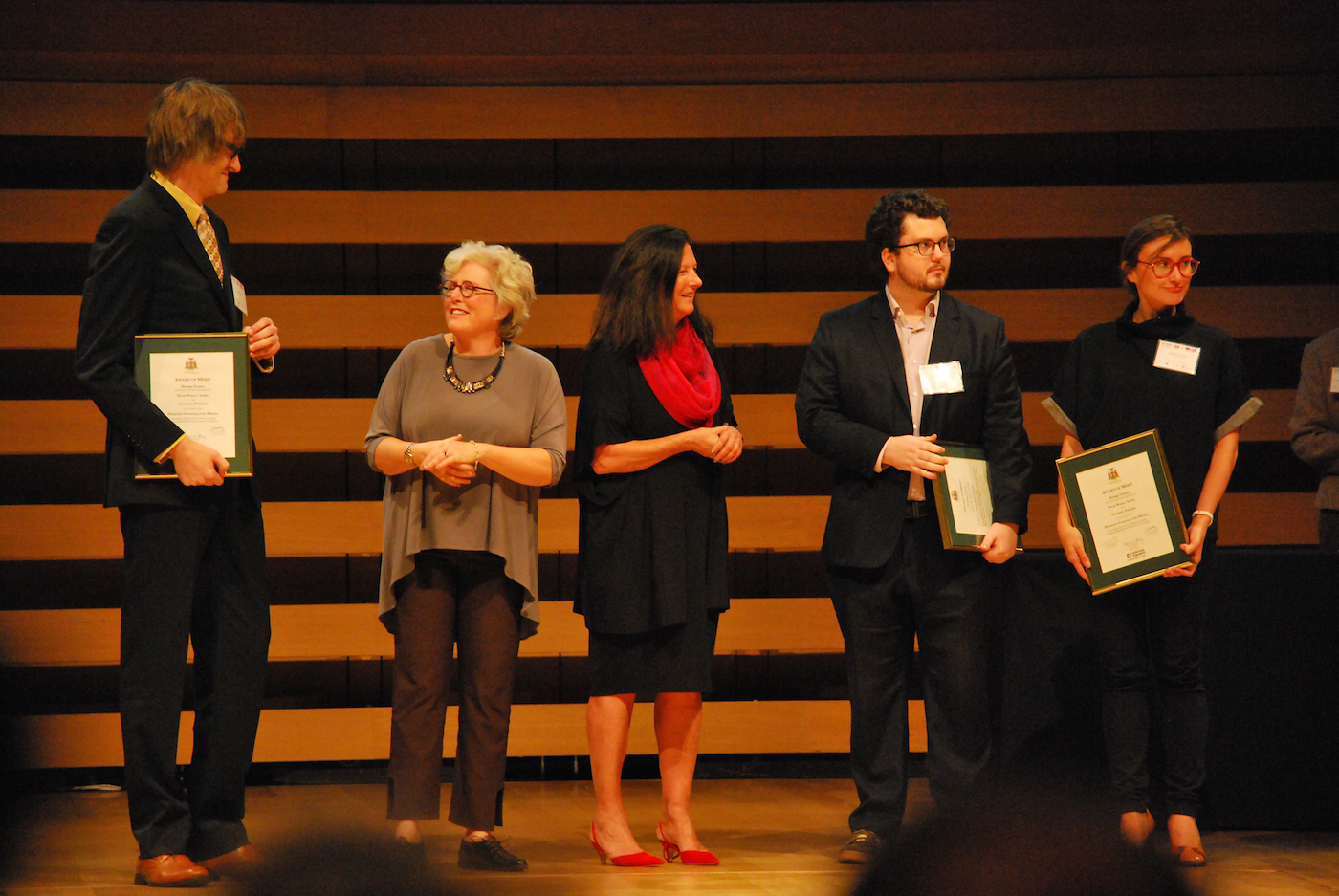 David Wencer and Torontoist collect their award, image by Marcus Mitanis
David Wencer and Torontoist collect their award, image by Marcus Mitanis
Honourable Mention: "The Charming Scam Artist Who Built Roncesvalles," by Angus Skene, published in The Toronto Star
**
The ceremony was followed by the annual Kilbourne Lecture, which this year was delivered by the Toronto Foundation's Rahul K. Bhardwaj. Bhardwaj's lecture focused on the theme of compassion, arguing that a city where people are treated well fosters economic growth and development, making Toronto's civic compassion a competitive advantage on the world stage. However, Bhardwaj warned that rising economic inequality and social isolation threatens to undermine the fundamental qualities that make Toronto great. "How can we be compassionate when we leave people to suffer?" Bhardwaj asked, "and how can we expect compassion in return from them?"
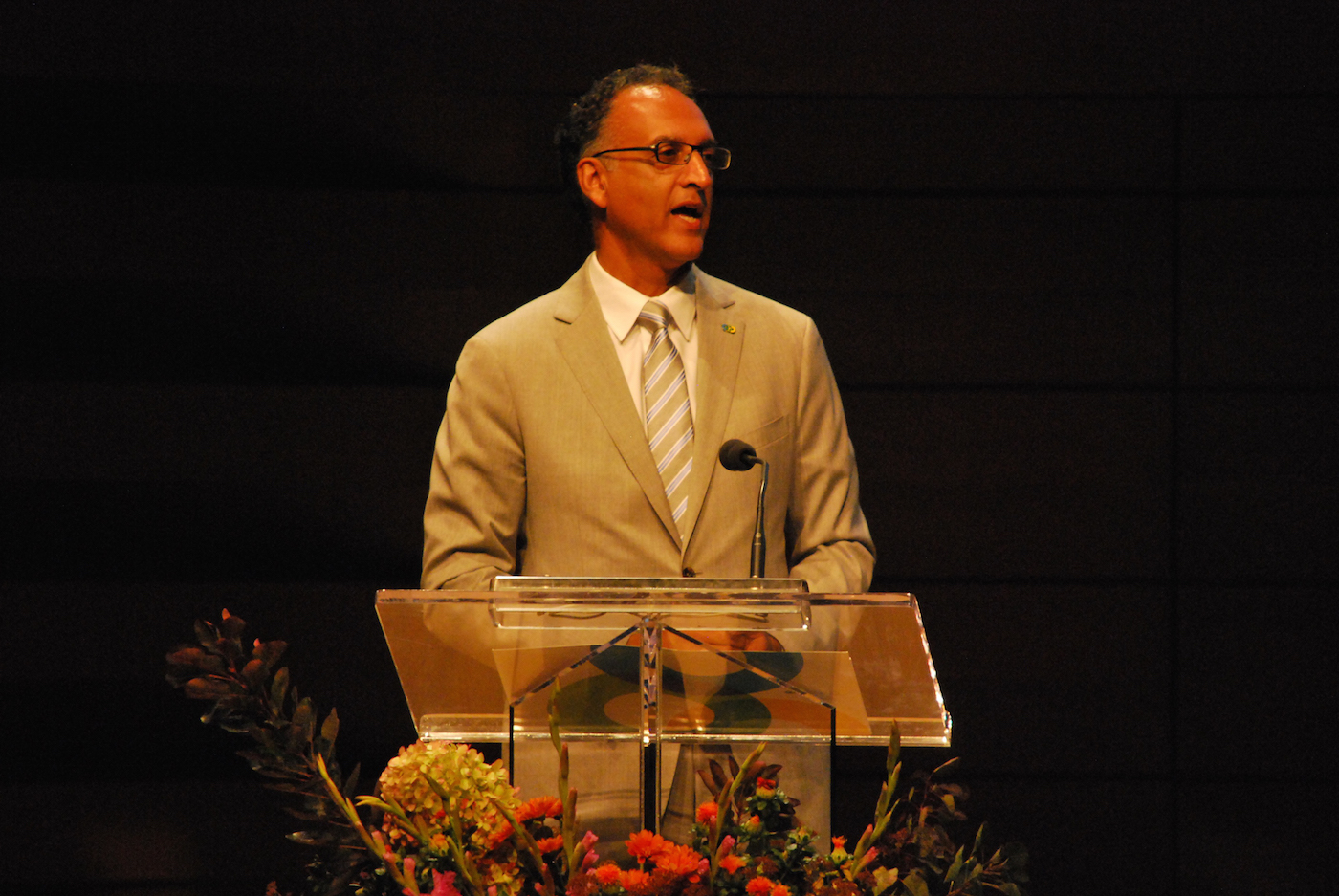 Rahul K Bhardwaj delivers the Kilbourn lecture, image by Marcus Mitanis
Rahul K Bhardwaj delivers the Kilbourn lecture, image by Marcus Mitanis
Bhardwaj argued that economic dignity and social cohesion play key roles in driving the economies of cities, and that our city must be vigilant in protecting its most vulnerable residents in order to drive social and economic prosperity in the future. "Rosedale should cross the street," Bhardwaj told us, looking out across the audience as he echoed words those swords, first spoken to him decades ago in a church.
The evening, which began by celebrating the achievements of the past year, ended with a troubling—though optimistic—look into the city's future. For everything that has been accomplished over the past year, Bhardwaj's speech left the audience reflecting on how much there is still left to do.

 1.8K
1.8K 












